- Home
- Rick Mofina
They Disappeared Page 9
They Disappeared Read online
Page 9
What a treat, Brewer thought before his concentration was broken by the crackle of the radio clipped to the uniformed officer standing point by the patrol car.
“Ever think of using your earpiece, sport?” Brewer kept his voice low. “They’re not supposed to know we’re coming.”
Earlier, after Sheri Dalfini had given them Omarr, Brewer and Klaver worked the computers and the phones with their confidential informants. It didn’t take long for their C.I.s to point them to Morningside, where Omarr lived under the radar.
They’d alerted their supervisor, who got things moving on a warrant, identifying Omarr as a wanted suspect in the homicides of two unidentified males and the kidnapping.
Given the magnitude of the offenses, the NYPD’s Emergency Service Unit and scores of other police were dispatched to the marshaling point two blocks from the location. Brewer saw all the u-cars but lost count. Uniformed patrols had set up the outer perimeter, deflecting traffic, while the tactical squad set up on the building.
Out of sight, down the block from the building, squad Chief Lieutenant Clint Gatlin locked onto Omarr’s apartment through his binoculars.
Third floor, unit 12.
His team of heavily armed officers had already studied the building’s floor plan. They had, in near-silence, swiftly evacuated people from the line of fire in the surrounding residences and now waited inside.
Paint blistered along the walls where Gatlin’s squad had taken positions on the stairs leading up to unit 12, on the landing above it, the fire escape behind it and on the roof.
Gatlin’s information showed that the subject possessed automatic and semiautomatic guns and should be considered dangerous.
His team would make a forced rapid entry.
After a final round of radio checks, Gatlin gave the green light to his squad sergeant.
Within seconds, the team smashed through the apartment’s door and rear window; their helmet lights raked the darkness as they swept the living room, kitchen, stormed down the hallway to the first bedroom where they found an elderly woman awake, alone and afraid in her small bed.
In the second bedroom they found a girl, about six or seven years old, alone in her bed, holding a stuffed teddy bear and crying at the big gun-toting men stampeding through her home.
The third bedroom was empty, but men’s boxers, shirts, pants, were strewn about the floor and the bed. Clothes spilled from the dresser.
The bathroom was checked, closets were checked; special equipment was used to scan the walls and ceiling for body mass. The entire unit was inspected three times before it was cleared and declared safe.
The squad leader radioed Gatlin, who alerted Brewer.
Brewer, Klaver, Cordelli and Ortiz donned body armor and headed down the street. By the time they’d entered the apartment building, Louella May Bell, the unit’s rent-payer, was in her robe and seated at the kitchen table under guard by the ESU.
“Ma’am, are there any weapons in this home?” the officer asked her.
“I don’t have any guns. You’re the people with the guns.”
When Brewer arrived, he waved the ESU away. He and Cordelli sat with Louella at the kitchen table while Ortiz and Klaver stayed with the little girl in the living room. Ortiz looked around as Klaver tried to calm the child by showing her a game with butterflies on his BlackBerry.
“Don’t worry, everything’s okay,” Klaver said. “What’s your name, sweetheart?”
The girl didn’t respond. She watched the game without smiling.
In the kitchen, Brewer placed the warrant on the table next to Louella, snapped open his notebook and began jotting the date, time, address.
“Miss Bell, we understand you’re Omarr’s grandmother. We’d like to talk to him. Could you tell us where we can find him?”
Her mournful eyes reflected a life of struggle, an uncomplaining endurance of police trouble concerning her grandson.
“I done told the other men and I’ll tell you the same, Omarr’s not here.”
“We’ve figured that out. Where is he?”
“Why you got to trouble him? He’s doing the best he can. He’s had a hard, hard life. He never knew who his father was. Did you know my daughter was raped at fifteen when she had him? A year after he was born she was murdered. Omarr’s daughter Shereesa means the world to him.”
“That’s the little girl who lives here also?”
“Yes, sir, she’s seven, and Omarr loves her to death.”
* * *
Taking stock of the apartment, Ortiz thought it was well-kept with modest dignity. The sofa, coffee table, area rugs, lamps, were immaculate. Framed photos of people and keepsakes were lovingly displayed on the shelves.
Ortiz inspected each of them.
Many were of older men and women, looked like they were on vacations, a few of younger people, including a good number of the little girl.
Ortiz stopped at one framed picture: a birthday picture.
The little girl was smiling before a huge cake with seven candles and the words Happy Birthday Shereesa iced on it.
The man standing behind her, smiling with his hands on her shoulder, was Omarr. Ortiz’s attention went to Omarr’s hand.
She concentrated on the ring he was wearing.
Oh, Jesus.
In the kitchen Brewer would not let up with his questions for Louella Bell.
“I told you I don’t know where Omarr is.” Louella’s eyes shifted to the doorway where Ortiz was standing.
When Brewer and Cordelli turned, Ortiz tilted her head and they joined her in the living room.
“Look at this one,” Ortiz pointed her BlackBerry at the birthday photo. “Look at his ring.” Ortiz then turned her small screen to show Brewer and Cordelli the color picture she’d cued and enlarged.
It was the same ring.
The photo was among dozens provided by the crime scene people.
It was the ring found on one of the victims at the SUV fire in Brooklyn.
“Well, well, well,” Brewer said.
Ortiz glanced back toward the little girl, a gesture that suggested Brewer be careful. Then he took Ortiz’s BlackBerry and returned to the kitchen.
“Miss Bell.” Brewer showed Louella the enlarged picture of the ring from the crime scene. “Omarr wears a ring just like that, doesn’t he?”
She stared at the ring in the picture for the longest time, not moving, not saying anything until her tired eyes brimmed with tears.
“Miss Bell—” Brewer cleared his throat “—does Omarr have a dentist?”
Louella closed her eyes.
She was not a stupid woman.
The day she had dreaded was here.
The day part of her had died when her daughter was killed had come again with an armed invasion and four grim-faced detectives standing in her home at four in the morning.
Louella May Bell knew.
“I have a card in my purse.”
She swallowed and went to stand but her knees gave out.
Brewer and Cordelli caught her, set her gently back in her chair.
Suddenly Shereesa flew to her and the two held on to each other.
“It’s just us now, child, just us.”
CHAPTER 19
Manhattan, New York City
Jeff Griffin was too tense to sleep.
He dozed, awakened and then drifted into that torpid state between consciousness and fantasy.
In his darkest hour he found a flash of happiness: a vision of himself with Sarah, Lee Ann and Cole together. It passed in brilliant light like a dying star before the horror descended, crushing him until he woke to the nightmare.
On the luggage rack at the foot of their bed, he saw Sarah’s sweater, a folded top and pants. On the neatly made bed beside him, Cole’s underwear, shorts and T-shirts.
These were the remnants of yesterday.
He was alone in the aftermath.
It was 6:20 a.m.
He grabbed his cell phone from the nightstand, thankful it was fully charged.
No messages. No texts. Nothing.
He called down to the front desk. A man answered.
“No, sir, there are no messages for 1212.”
Jeff placed the handset back in the cradle. Pain hammered from the inside of his skull; his stomach was cramping from having not eaten for some twenty-four hours.
They need you. Get to work.
He started the room’s coffeemaker, then took a shower. Images of the car fire and corpses swirled in the water’s rush until he remembered Cordelli’s caution.
“You’ll make yourself crazy imagining the worst scenarios.”
Stepping from the shower he thought, first things first. His stomach roiled to the point of nausea. He had to eat something. Sarah, a believer in contingency, had put a couple of apples and granola bars in her bag.
Okay, that was breakfast.
Jeff ate the food and drank black coffee, deciding he would call Cordelli for an update. Maybe the cops had a lead from the fire victims? As Jeff reached for the hotel phone, it rang.
His heart skipped. Please let it be Sarah. He grabbed it.
“Is this Jeff?” a woman’s voice asked. “Jeff Griffin?”
It was not Sarah.
“Who’s calling?”
“Melissa Mason from the New York Post, I’m trying to reach Jeff Griffin. Would that be you?”
Melissa Mason was caffeine fueled and fast-talking, with a New York accent. Cordelli had told him that police were going to put out a public appeal for help on the case late last night.
“Yes, this is Jeff Griffin.”
“Jeff, I’m writing a story for the Post. Have you received any word on the whereabouts of your wife and son?”
“No.”
“Do you any idea who would do this?”
“No.”
“Can you detail for me exactly what happened near Times Square yesterday?” Jeff hesitated, then told her. Melissa punctuated his recounting of events with “uh-huhs,” then asked more questions and went over their background. “Sarah’s a teacher? And you’re a mechanic and a volunteer firefighter in Montana? And Cole is nine? Is he your only child?”
That one stopped Jeff cold. But he answered.
“We had a daughter, Lee Ann. She died at six months.”
“Oh, my God, I’m sorry,” Melissa said. “This whole ordeal has gotta be horrible for you. What thoughts are going through your mind?”
“I want them back. I don’t know who did this, I don’t know why. I want them back.”
“I understand. Um, Jeff, I’d like to come to your hotel with a photographer to take your picture, would you agree?”
“I don’t know, I—”
“We’ll go big with Sarah’s and Cole’s pictures. It’ll help find them, Jeff. It’ll go on our site, and on the streets, everywhere. It won’t take long. We can be there in forty-five minutes, maybe sooner. We’ll try sooner.”
“All right.”
“Do you have a cell phone number, an email address?”
Jeff needed to keep his cell phone clear.
“Just use the hotel number.”
After the call Jeff switched on the TV in time to catch a local New York City morning newscast. Sarah and Cole stared back at him.
He didn’t move except to adjust the volume as the female anchor read the news.
“We start off this morning with this breaking story of two dead men and the brazen abduction of a schoolteacher from Montana and her nine-year-old son. Tyko Sanderay has more. Tyko?”
The story cut to a reporter in his twenties downtown.
“Yes, thank you, Maria. Police say this strange case all started here, yesterday morning on the fringes of Times Square, when Sarah Griffin and her nine-year-old son, Cole, were abducted by as many as three men in a white SUV. Detectives and FBI agents say this brazen criminal act was caught by security cameras.”
Stop-action images of Sarah and Cole being taken quickly into the vehicle played as the reporter’s voice carried over them.
“The woman’s husband, the boy’s father, reported his family missing to the NYPD yesterday morning. Detectives determined it was a stranger abduction. Now, here’s where the story gets even more troubling. Within hours of the kidnappings the vehicle was driven into Brooklyn. The vehicle, a 2010 GMC Terrain, was discovered in Brooklyn on fire by an NYPD patrol unit. And we obtained this footage from a viewer who was passing by when firefighters arrived.”
The report showed shaky cell phone video of the SUV burning.
“There were several small explosions. When the fire department finally doused the fire, they found the bodies of two males, burned beyond recognition inside, in what has been classified as a double homicide. Maria.”
“Tyko, Action News has just learned that police may have tentatively identified one of the victims as Omarr Lincoln Roderick Aimes, aged thirty-two, after an early-morning raid on his home near Morningside Park?”
“Yes, Maria, our sources have just confirmed that. Now, police don’t know, or aren’t saying, who is behind this series of crimes. Nor are they saying why a schoolteacher and her son on a family vacation to the city were targets. One source told me this morning that there’s every indication that they’re still alive and may be being held somewhere. The NYPD is working with the FBI and a multitude of other agencies on this case. Sources say investigators would not rule out anything at this stage and they’re asking that anyone with any information call the hotline immediately.”
“And you’ll keep us posted, Tyko.”
“We will, Maria.”
Jeff sat down on the bed, not listening as the news continued.
“Thank you. Now in other news, the yearly United Nations General Assembly Meeting gets under way, and with more than one hundred and fifty world leaders come the usual traffic headaches….”
As Jeff struggled to absorb everything, the hotel room phone began ringing again and he got up to answer it without adjusting the TV.
“A chief concern for security officials is the planned visit to Battery Park for the 9/11 memorial by the Russian president and the president of Mykrekistan, the troubled Russian republic. Officials are bracing for what could be violent protests against the Mykrekistan government for alleged human rights….”
The hotel phone continued ringing until Jeff shifted his attention from the TV and answered.
“Good morning, this is Russell Powell of the New York Times. May I speak with Mr. Jeff Griffin please?”
“I’m Jeff.”
“Mr. Griffin, the Times is preparing a story on the abduction of Sarah, your wife, and Cole, your son. Would you agree to an interview now over the phone?”
“Yes.”
“Thanks. I’d like to start by confirming names and ages—”
Jeff’s attention shot to the nightstand as the keypad lights on the cell phone illuminated as it began ringing.
“Wait,” he told the Times reporter, and put the hotel phone down.
His heart began racing. The number was blocked. Was it Cordelli? Another reporter? He answered and pressed it to his ear.
“Hello?”
Static crackled. Then: “Jeff! Oh,
God, Jeff, help us!”
His skin tingled at the sound of Sarah’s plea.
“Sarah! Where are you?”
More static and commotion.
“Daddy! Please come and get us! Please hurry!”
“Cole! I’m coming, son! Where are you, tell me!”
The line went silent. Jeff kept the phone welded to his ear, his digital lifeline, his only hope to see his family. For that moment all he heard was the small tinny voice of Russell Powell from the New York Times on the handset on the nightstand.
“Hello, Mr. Griffin? Are you still there? Hello?”
Jeff ignored him and hung up.
The cell phone connection was unbroken. As Jeff called into it for Sarah and Cole, it clicked with a deep robotic voice, filtered through a scrambler.
“If you want to see your wife and son again, do as instructed. Your son’s bag was mixed up with ours at the airport. When we arranged to have the bags exchanged an item was missing from our bag. We want our property.”
“What? I don’t understand. Is this Hans Beck? Everything was in the bag! Please, this is a mis—”
“We want our property returned. It is a small toy airplane. It is only of value to us. Find it, bring it with you and leave now on foot for Grand Central Terminal. Keep your phone on for instructions. If you fail, if you inform police, your family will die. We are watching. Leave now!”
“Please, let them go! This is mistake! I’m begging you, please let them go!”
The line went dead.
CHAPTER 20
Manhattan, New York City
They’re alive.
For now.
His heart racing, Jeff scanned the room.
A toy airplane?
His family had been abducted for a toy?
This is insane.
He couldn’t make sense of the absurdity. Time pummeled him. Each second was a fist striking him with desperation, demanding action.

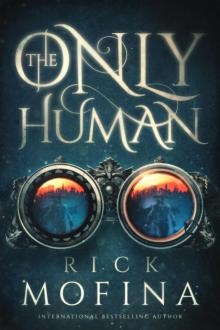 The Only Human
The Only Human Tom Reed Thriller Series
Tom Reed Thriller Series![[Tom Reed and Walt Sydowski 04.0] No Way Back Read online](http://i1.bookreadfree.com/05/tom_reed_and_walt_sydowski_04_0_no_way_back_preview.jpg) [Tom Reed and Walt Sydowski 04.0] No Way Back
[Tom Reed and Walt Sydowski 04.0] No Way Back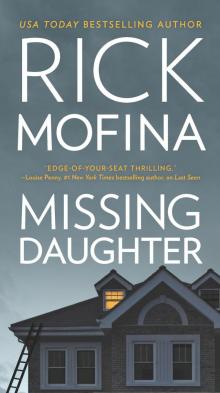 Missing Daughter
Missing Daughter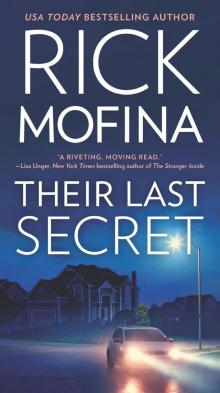 Their Last Secret
Their Last Secret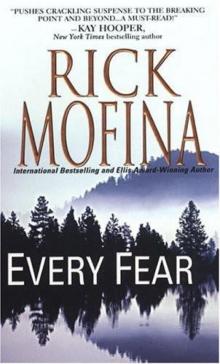 Jason Wade - 02 - Every Fear
Jason Wade - 02 - Every Fear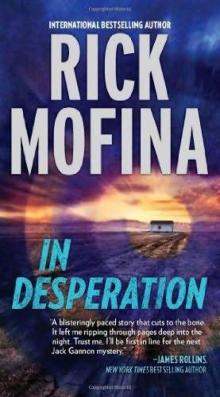 In Desperation
In Desperation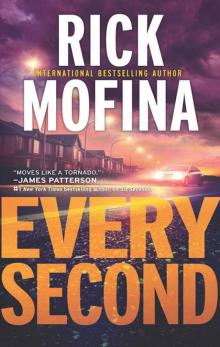 Every Second
Every Second Full Tilt
Full Tilt Search for Her
Search for Her The Last Pursuit
The Last Pursuit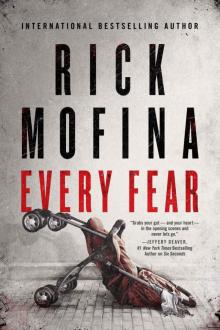 Every Fear
Every Fear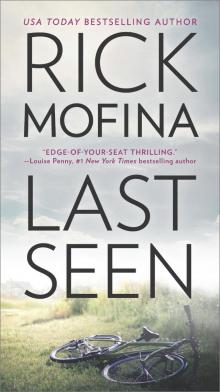 Last Seen
Last Seen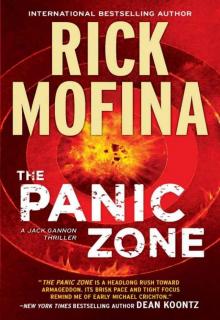 The Panic Zone
The Panic Zone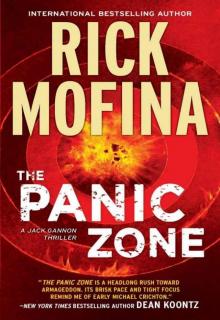 The Panic Zone jg-2
The Panic Zone jg-2 Free Fall
Free Fall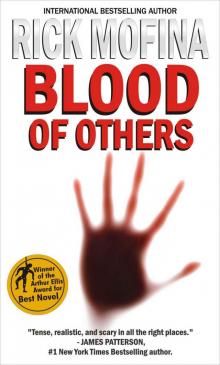 Blood of Others
Blood of Others![[Jason Wade 02.0] Every Fear Read online](http://i1.bookreadfree.com/i1/03/31/jason_wade_02_0_every_fear_preview.jpg) [Jason Wade 02.0] Every Fear
[Jason Wade 02.0] Every Fear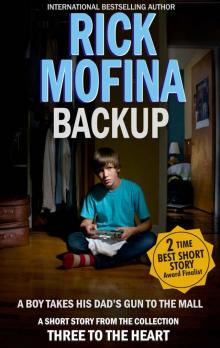 Backup
Backup Perfect Grave
Perfect Grave Into the Dark
Into the Dark Whirlwind
Whirlwind Perfect Grave jw-3
Perfect Grave jw-3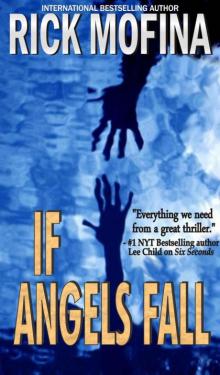 If Angels Fall (tom reed and walt sydowski)
If Angels Fall (tom reed and walt sydowski) Six Seconds
Six Seconds If Angels Fall
If Angels Fall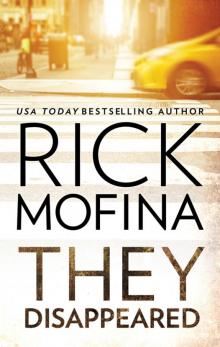 They Disappeared
They Disappeared Vengeance Road
Vengeance Road Before Sunrise
Before Sunrise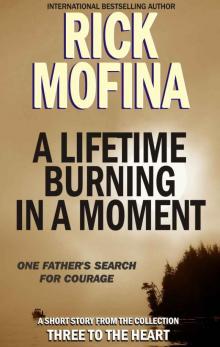 A Lifetime Burning in a Moment
A Lifetime Burning in a Moment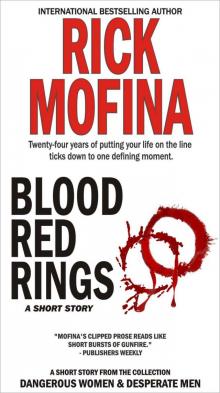 Blood Red Rings (Dangerous Women & Desperate Men)
Blood Red Rings (Dangerous Women & Desperate Men) As Long As We Both Shall Live (Dangerous Women & Desperate Men)
As Long As We Both Shall Live (Dangerous Women & Desperate Men)![[Tom Reed and Walt Sydowski 01.0] If Angels Fall Read online](http://i1.bookreadfree.com/i2/04/12/tom_reed_and_walt_sydowski_01_0_if_angels_fall_preview.jpg) [Tom Reed and Walt Sydowski 01.0] If Angels Fall
[Tom Reed and Walt Sydowski 01.0] If Angels Fall Cold Fear
Cold Fear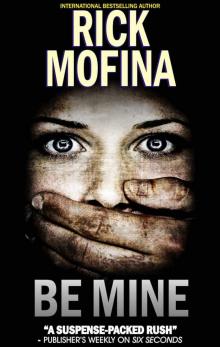 Be Mine
Be Mine Three Bullets To Queensland
Three Bullets To Queensland